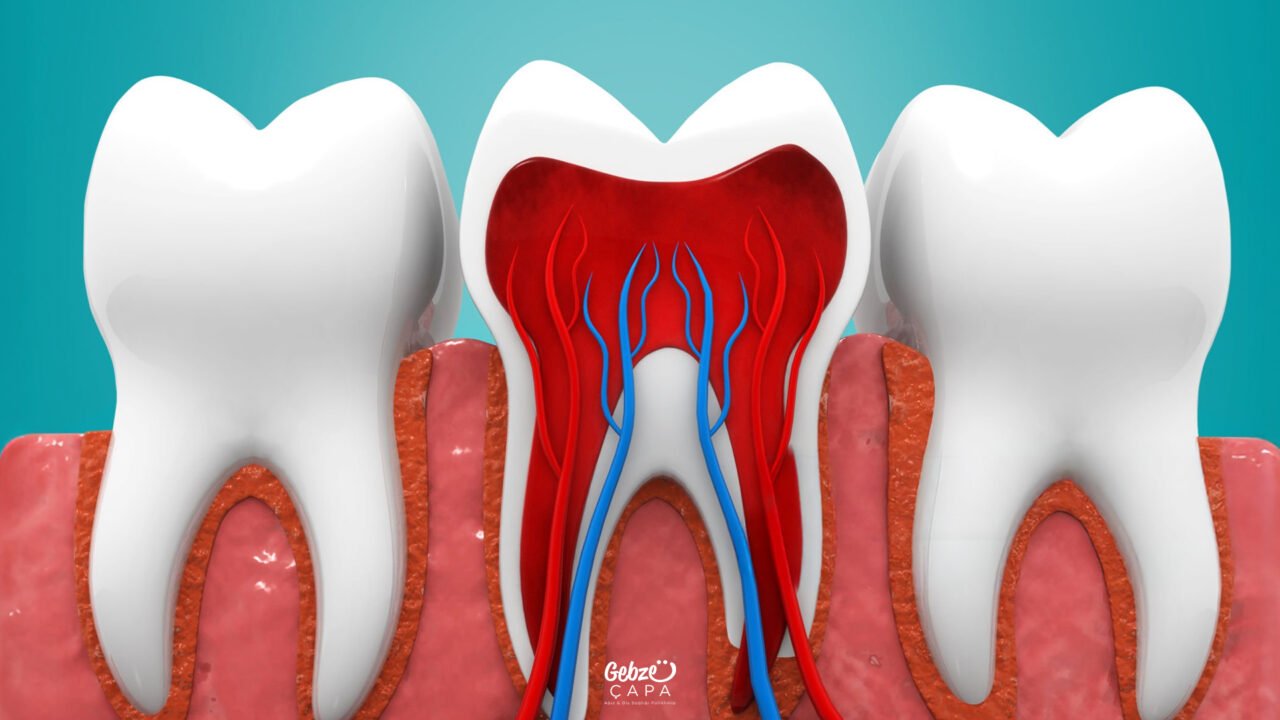What is Tooth Root Infection?
Symptoms such as toothache are often seen as temporary problems and are ignored. However, these symptoms can be a sign of a serious problem that requires intervention, such as tooth root inflammation. Tooth root inflammation is an infection that occurs as a result of inflammation of the pulp tissue located inside the tooth or the tissues at the tip of the tooth root.
It usually develops as a result of the progression of a cavity, trauma to the tooth or gum disease and can threaten not only the tooth but also our general health if not treated in a timely manner.
The most common symptoms of tooth root inflammation include severe tooth pain, hot and cold sensitivity, pain when chewing, facial swelling and sometimes fever. This condition not only causes pain and discomfort, but can also lead to systemic health problems and even complications affecting vital organs such as the heart and kidneys if the infection spreads.
What is Tooth Root Infection?
Tooth root inflammation, as its name suggests, is actually an infection and inflammation that occurs in the root of the tooth. It usually occurs after a deep cavity, a blow to the tooth, a crack or trauma. There is a tissue called pulp in the inner part of our teeth, which contains nerves, blood vessels and connective tissue. When this tissue is damaged or infected, the body immediately develops a defense mechanism and inflammation begins. If this inflammation is not treated in time, the infection can progress to the tip of the tooth root and the surrounding bone. In this case, an abscess can form at the root tip, which causes both severe pain and facial swelling.

What Causes Tooth Root Infection?
Tooth root inflammation actually develops due to some conditions that we often experience without realizing it. Here are the most common causes:
- Deep Decay: When the decay in our teeth progresses and reaches the pulp, the core of the tooth, bacteria begin to multiply there and cause infection. This is one of the most common causes of inflammation.
- Impacts to the Tooth (Traumas): A hard blow to the tooth, falling, hitting or trauma resulting from an accident can cause damage and inflammation of the pulp.
- Cracks or Fractures in the Tooth: Even a small crack or fracture in our tooth can pave the way for bacteria to reach the inner parts, which can lead to inflammation.
- Previous Dental Treatments: Especially after procedures such as root canal treatment, if the treatment is inadequate or not done properly, the tooth may develop a new infection.
- Gum Diseases: Advanced gum diseases can also cause tooth root inflammation. Because in these cases, bacteria can progress to the root tips and cause infection.
In short, there may be minor problems behind tooth root inflammation that we often overlook or disregard. That’s why we recommend that you pay attention to your dental health and don’t skip regular check-ups…
What are the Symptoms of Tooth Root Infection?
The most common symptoms are:
- Severe and constant toothache
- Pain while chewing and biting
- Sensitivity to hot and cold foods
- Swelling and redness in the gums
- Pusy discharge from the gums
- Facial swelling if it is very advanced
- Bad odor in the mouth
In addition, there may be no symptoms and the infection may be detected during a routine dental check-up.

How is Tooth Root Infection Treated?
Treatment of tooth root inflammation aims to eliminate the source of the infection and save the tooth as much as possible. Treatment methods are as follows:
- Root Canal Treatment (Endodontic Treatment)
The most common treatment method for tooth root inflammation is root canal treatment. In this procedure, the infected pulp tissue inside the tooth is cleaned, the canals are disinfected and filled with appropriate filling material. Thanks to root canal treatment, the tooth can be kept in the mouth without being extracted.
- Antibiotic Treatment
If the inflammation has spread or there is swelling on the face, antibiotic treatment can be applied. However, antibiotics are not the only solution; they must be supported by root canal treatment.
- Tooth Extraction
If the tooth is severely damaged and cannot be saved, the tooth may need to be extracted. After the extraction, the tooth cavity can be completed with an implant, bridge or denture.
What Happens If It Is Not Treated?
Tooth root inflammation can spread over time and cause serious health problems:
- Tooth loss
- Infection in the jawbone
- Spread to the sinus cavities
- Systemic complications such as heart valve inflammation
- Severe and constant pain and decreased quality of life

How Many Days Does Tooth Root Infection Take to Pass?
The time it takes for tooth root inflammation to heal completely actually varies depending on the type of treatment, the general condition of the tooth, and the healing rate of the person’s body. Generally, as the first step, dentists start antibiotic treatment to control the infection. These antibiotics are used for an average of 7 to 10 days and help stop the spread of inflammation and reduce pain and swelling.
However, using antibiotics alone does not completely cure tooth root inflammation. The real treatment is cleaning the infected tissue inside the tooth and sterilizing and filling the root canals of the tooth. In other words, the process we call root canal treatment comes into play. The duration of root canal treatment varies according to the condition of the tooth.
While in some simple cases, treatment can be completed in a single session, more complex and widespread infections may require more than one session. This process can sometimes take several weeks.


